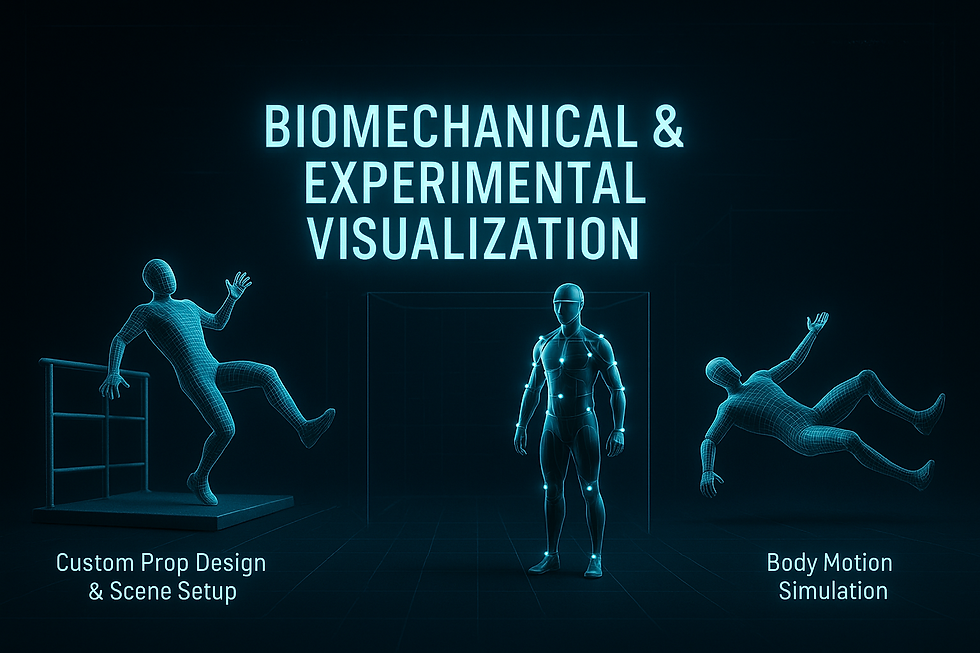Biomechanical & Experimental Visualization
- Shawn Kinsey
- Jun 5, 2025
- 2 min read
Updated: Jun 8, 2025
Testing theories. Demonstrating motion. Validating claims.
At 4ensic Impact LLC, we specialize in biomechanical and experimental visualization to help attorneys, experts, and juries understand how the human body moves, reacts, and responds under specific conditions. Whether comparing witness accounts to low-quality video or analyzing the plausibility of an injury claim, we create evidence-based visualizations that bridge the gap between theory and observable motion.

Custom Prop Design & Scene Setup
We fabricate custom rigs and props to replicate real-world conditions and constraints. These setups allow us to test theories, re-create environments, and stage motion tests that are tailored to the specifics of each case. Whether it’s the height of a step, the reach of a handrail, or the angle of a fall, every detail is recreated with accuracy.
Motion Capture (MOCAP) Recording & Retargeting
We use professional-grade motion capture technology to record human movement in real time. Once captured, the data is retargeted to 3D characters in scene-accurate environments, allowing us to test various body types, motions, and outcomes — all while maintaining biomechanical realism.
This is especially useful in cases where body movement is disputed, such as:
Slip, trip, and fall incidents
Use-of-force and police encounters
Injury biomechanics and reaction time studies
Disputed movements caught on grainy or unclear surveillance
Keyframe Animation with Intelligent IK Rigs
In addition to MOCAP, we use advanced character rigs with inverse kinematics (IK) to animate or refine body motion manually when capture data is unavailable. This allows us to fine-tune posture, joint constraints, reach, and balance to realistically represent what a person could or could not physically do within a given environment.
Body Motion Simulation & Ragdoll Physics
To evaluate how the body reacts dynamically — after impact, loss of balance, or release of restraint — we simulate body motion using physics-driven ragdoll animation. This helps illustrate:
Fall trajectories
Ground impacts
Motion after contact or collision
Biomechanical plausibility of injuries
Comparison Against Video, Photos, and Testimony
We align our recreated motion to video footage, surveillance angles, and still images using virtual camera matching. Our animations can also be synchronized with deposition testimony to test or challenge consistency between narrative and what could actually occur.



Comments